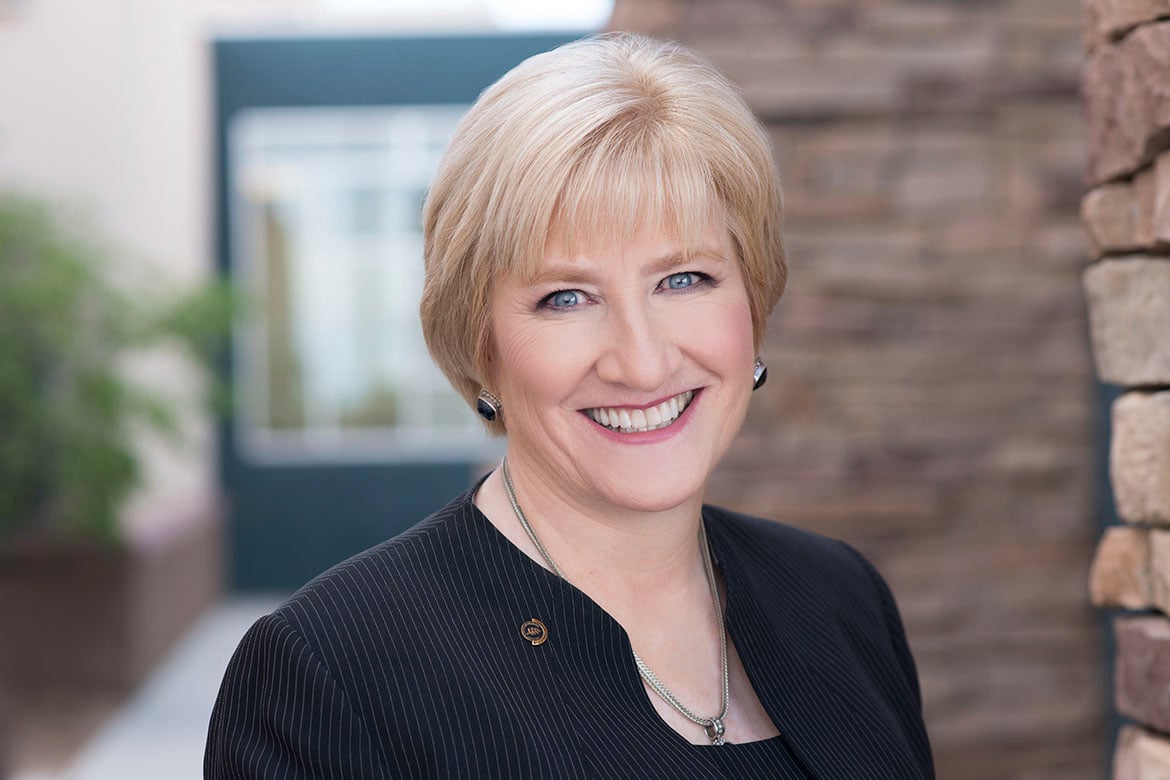Maintaining independence is important to physicians—especially when it comes to being able to deliver the care their patients need in the manner that they want, without outside interference.
The National Cancer Care Alliance (NCCA) serves as a catalyst for financial and clinical integration that allows oncology practices to operate independently while collaborating on best practices and sharing economies of scale.
“Sometimes you need to be bigger than you can be in your own market,” said NCCA founder and chair Barbara L. McAneny, MD, adding that the organization allows oncologists to “be big when you want to be big and be small when you need to be small."
“If you believe that health care ought to be structured in such a way that we can get patients what they want and need, when they want and need it, at a price they can afford, then your practice would fit in our organization,” said Dr. McAneny, the 2018–2019 president of the AMA.
The NCCA is a network of 15 practices with more than 200 oncologists and is a member of the AMA Health System Program, which provides enterprise solutions to equip leadership, physicians and care teams with resources to help drive the future of medicine.
The network stems from Dr. McAneny’s work with the Center for Medicare and Medicaid Innovation (CMMI) on the Community Oncology Medical Home (COME HOME) project in 2012. That project built on the work Dr. McAneny did at the practice she started, the New Mexico Cancer Center in Albuquerque, and replicated it at six other practices across the country.
By restructuring practices in a way that kept people healthy enough to keep them out of the hospital, COME HOME saved Medicare between 11.5% and 8.1% while helping to lower emergency department visits by 10.2%.
Despite the project’s success in achieving better outcomes at lower cost, CMMI did not award Dr. McAneny funding for a follow-up project—though it did incorporate elements of COME Home into its Oncology Care Model.
In 2016, she recruited several like-minded oncology practices to work on finding ways to improve care while also helping to sustain independent practices.
“We needed to have a mechanism to help practices remain independent in a changing environment and to help practices achieve things together that they were unable to achieve separately without losing their independence,” Dr. McAneny said.
No interest in building bureaucracy
In her role as NCCA chair, Dr. McAneny said she is “unpaid staff” and sits on all of the organization’s committees, which includes some that require a lot of work on her part and some where she is just an observer.
“One of the philosophies of National Cancer Care Alliance is that we never want to create a huge infrastructure that practices had to pay for,” Dr. McAneny explained. “We wanted to be lean, swift and mostly volunteer, with the idea that any money we could create would go through to the practices and not to the overhead of NCCA—and that’s really been a guiding principle.”
Other guiding principles include physicians not giving up a percentage of their practice or being told how to treat their patients through specific formularies, Dr. McAneny added.
NCCA appeals to physicians with an entrepreneurial spirit who can test new ideas without needing to go through endless rounds of meetings. This can lower the stress that leads to burnout and improve patient satisfaction because patients notice their physicians are more focused on their needs and not some other external pressures, Dr. McAneny said.
“I like to grow things and build things and come up with new projects,” she said.
One of NCCA’s recent projects is to participate in a company called Exigent,initiated by another group of similarly minded practices on finding appropriate clinical trials to participate in and contract as a group.
“It's only been around under a year, so we haven't closed any trials yet, but we have opened 26 trials and accrued more than 300 patients” she said. “We're still accruing patients and treating them, but it's very successful to date at finding us good trials and streamlining the administrative burden of doing them. It's a pretty exciting development.”
Dr. McAneny said Exigent is “democratizing” the process by bringing clinical trials to patients rather than having them travel to an academic medical center. She said this results in having a test population of patients that “will more closely reflect the people we actually treat.”
Through NCCA, Dr. McAneny has also created the Cancer Safety Net Foundation, which has helped patients cover nonmedical expenses. This has included paying the rent and buying food, fixing roofs, truck repairs and replacing a hot water heater—all so patients “are not getting their chemo while living in their car.”
“This foundation is how independent practices address the social determinants of health,” Dr. McAneny said.
Schooling physicians on business
Another project on the NCCA to-do list is “Oncology College,” where physicians can learn the business side of health care. In addition to imparting useful knowledge, Dr. McAneny hopes the initiative will help shatter the stereotype that physicians are less capable of running a business.
Courses will cover the basics of contracts, relevant laws and regulations, and hiring and firing staff.
“Firing is painful. Hiring is anxiety-producing, but it's manageable,” Dr. McAneny said, noting that physicians at the NCCA and many other physician-led organizations prove every day they can master profit and loss, income and expenses, and other business basics.
“It’s figuring out the input costs, adding them up, figuring out the payment process, putting that together, and adding and subtracting—and maybe a little multiplying and dividing,” she said. “But that's not rocket science.”




